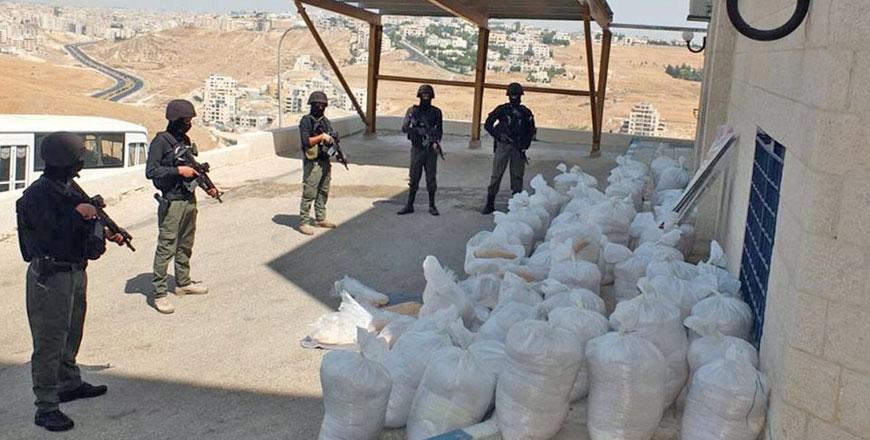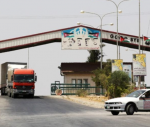You are here
Narcotics report warns against ‘rapidly developing synthetic drug market’
By Khetam Malkawi - Mar 13,2014 - Last updated at Mar 13,2014
AMMAN — Jordan and Syria were the main consignment countries of Captagon seized in Saudi Arabia in 2012, according to a UN report on narcotics.
The main destination of the 3,1881kg of Captagon tablets that were seized in the Middle East in 2012, was Saudi Arabia, the UN International Narcotics Control Board (INCB) 2013 report said.
According to the report, based on information by the World Customs Organisation, almost 83 per cent of all Captagon pills seized in the region was in Saudi Arabia, followed by Jordan and the UAE.
However, “Jordan and Syria were the main countries of consignment of the seized drugs reported by Saudi Arabia,” the INCB noted.
Captagon (fenethylline) is a synthetic stimulant similar to amphetamine.
Although banned in most countries in the 1980s, illegally produced and smuggled Captagon — sometimes containing amphetamine instead of fenethylline — is a common drug of abuse in the Middle East, according to web sources.
The INCB report, a copy of which was sent to The Jordan Times, also said there are indications that local clandestine manufacture of Captagon is expanding.
“Laboratory equipment and chemicals used for the manufacture of drugs including amphetamine sold as Captagon were seized by the Lebanese customs services,” the report said, adding that the material had arrived from China.
The INCB said another matter of great concern was the rapidly developing synthetic drug market and the emergence of new psychoactive substances in the Middle East, including synthetic cannabinoids, such as “spice”.
“Attempted smuggling and seizures of such substances were reported by Bahrain, Israel, Jordan, Oman, Saudi Arabia and the United Arab Emirates,” the report said.
Only one in six problem drug users worldwide — some 4.5 million people — receives the treatment he or she needs, at a global cost of about $35 billion per year, a UN statement quoted the Vienna-based INCB as saying in its annual report.
Heroin, cannabis and cocaine are the drugs most frequently used by people entering treatment worldwide.
INCB President Raymond Yans noted that investing in prevention and treatment is a wise “investment choice” as it can lead to significant savings in healthcare and crime-related costs and alleviate the suffering of drug-dependent persons and their families.
The INCB report reveals significant regional disparities in treatment provision: In Africa, only one in 18 problem drug users receives treatment; in Latin America, the Caribbean and South-eastern Europe, one in 11 problem drug users is treated; and in Northern America one in three.
Prescription drug abuse is a major threat to public health, outpacing the rates for illegal drugs in some countries, the INCB said, warning of widespread availability of prescription drugs.
Related Articles
AMMAN — Anti-Narcotics Department (AND) agents have foiled a "major" drug smuggling attempt, confiscating 13.2 million narcotic pills, the l
AMMAN — The Anti-Narcotics Department (AND) on Monday announced the arrest of two Arab nationals who reportedly attempted to smuggle 200,000
AMMAN — The Anti-Narcotics Department (AND) on Tuesday announced the arrest of four men including two Arab nationals who reportedly attempte















